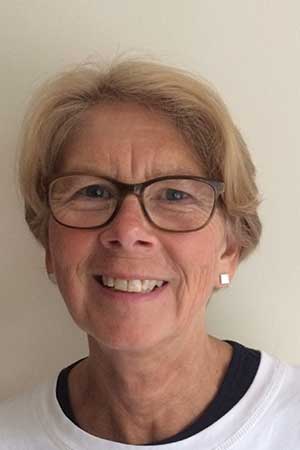PhD Student, Meryl Faiers, is currently a part-time doctoral researcher at the Shakespeare Institute, researching into operational aspects of 16th century theatre. She returned to studying following a career as a commercial theatre producer. Meryl tell us about her experience as a researcher at the University of Birmingham.
 Why did you choose to study a PhD in Shakespeare Studies?
Why did you choose to study a PhD in Shakespeare Studies?
“I began by studying for an MRes in Early Modern History, looking at the commercial operation of London playhouses during the period of Shakespeare’s professional life. As I started work on my dissertation it became clear that there was far more scope for detailed research than I had first envisaged so I went through a Progress Panel to upgrade from the MRes to a PhD at the Shakespeare Institute in order to be able to expand into a thesis.”
Why did you choose to undertake research at the University of Birmingham?
“Originally, with the MRes, simply because my first degree was from Birmingham in the 1970s and I wasn’t sure anyone else would take me after a 40 year gap! But as I progressed through the two part time years of the MRes, it became obvious that the Shakespeare Institute was uniquely suited to my research needs – so I’m fortunate in retaining my affiliation to my old university and being in the best possible place for my research.”
What are the best things about your course?
“There are three brilliant things about the Shakespeare Studies PhD as far as I’m concerned: the specialist library which has answered every need so far; the community; and simply being in Stratford. Of these, the community is the most important. The academic staff are, of course, second to none in Shakespeare studies but the current research cohort is also very valuable as a sounding board for ideas and it’s fascinating discovering what everyone else is working on. The Thursday afternoon seminars are great example of the wider Institute community, too, with many alumni returning regularly to hear the world class range of speakers.”
What is life like as a researcher at the University of Birmingham?
“The important word in that question for me is “at”. I don’t live anywhere near Stratford and nor do several of the other researchers but it’s proved absolutely worthwhile making at least a weekly journey to be properly part of the community. That way, supervisions can be face to face rather than via Skype and proper rapport is able to develop with staff and fellow students. The Institute has a huge amount of extracurricular activity on offer and being present in Stratford regularly means that some of that can be enjoyed. This is particularly so with the schedule of play readings – a painless and indeed fun way of getting through a lot of texts!”
What support have you received during your PhD?
“I’m sure like most of my peers I suffer from imposter syndrome in thinking I shouldn’t have been allowed to do this but the support of students and especially supervisory staff has been terrific. I’m a member of a small group of researchers with closely aligned interests, one of whom described me as her “academic sibling” when she came to support a conference paper I was giving – a brilliant description of the peer support we offer each other.”
Outside of your research, what experience have you gained and how will it help you in the future?
“This is a hard question for me as I’ve returned to study after a long career as a theatre producer and don’t have any plans for a fresh career. But certainly the return has given me confidence that I can still achieve things out of my comfort zone – present a conference paper, for example – and conversely has also allowed me to fully employ the portable skills I’ve gained over the years. But ultimately the experience of studying for the PhD is giving me a hugely enjoyable, stimulating and rewarding period post-career.”
Find out more studying for a Shakespeare Studies PhD over on our course pages.